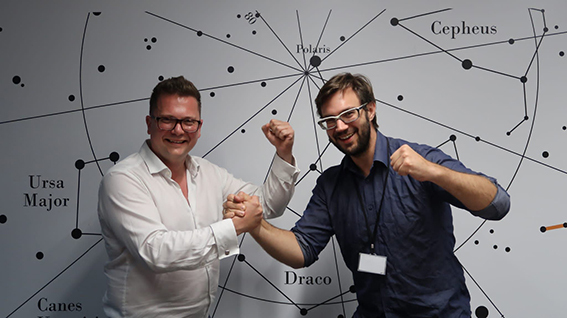A.D.A.M. Bioprinting
A.D.A.M. Bioprinting
Abouth the Company
- CEO: Denys Gurak
- Industry: Medicine
- Founded 2018
- Website: adambioprinting.com
- Location: Kyiv, Ukraine
A.D.A.M. Bioprinting
A.D.A.M. provides the service for the installation of a 3d bioprinting Point-of-Care medical device production system (POC MDPS) for personalized bone implants from bioresorbable and biodegradable materials in hospitals.
A.D.A.M. medical products are subject to the simplified FDA’s market approval process ((510(k))) and do not require human studies. Biomechanical testing of the implants has been conducted at Yale University and the University of Connecticut.
A.D.A.M. System can be used both to perform urgent orthopedic surgical operations for the military and to be expanded with other medical products for treatment. The Company plans to install its own 3D printers in Ukrainian hospitals for the production of innovative bone implants for victims of Russian aggression.
Innovative solutions
The revolutionary TAAS (“technology-as-as-service”) business model significantly reduces the waiting time for implant delivery.
A.D.A.M. technology also includes unique bioceramic and biopolymer materials, patented materials, equipment and process.
Sustainability
The sustainability of the project hinges on several key factors:
1. Ethical Considerations: The project addresses ethical concerns surrounding organ transplantation by providing a potential solution to the shortage of donor organs.
2. Economic Viability: the potential cost savings and revenue generation from A.D.A.M. system could make the company economically sustainable in the long run.
3. Technological Innovation: A.D.A.M.’s commitment to research and development ensures that it remains at the forefront of technological advancements, allowing it to adapt to changing market demands and address emerging challenges in healthcare.
Overall, the sustainability of the startup hinges on its ability to deliver innovative solutions to pressing healthcare challenges while addressing ethical concerns, and demonstrating economic viability.
Partners
Ministry of Health of Ukraine (Memorandum of Understanding and Cooperation dated May 19, 2022).
Scientific partners: University of Connecticut; University of Yale; Eindhoven University of Technology (TU/e).
Sygnis SA (equipment developing partner) Mount Sinai, New York (clinical and reserch partner) Masovian Voievodeship Hospital in Siedlce, Poland (clinical partner).
